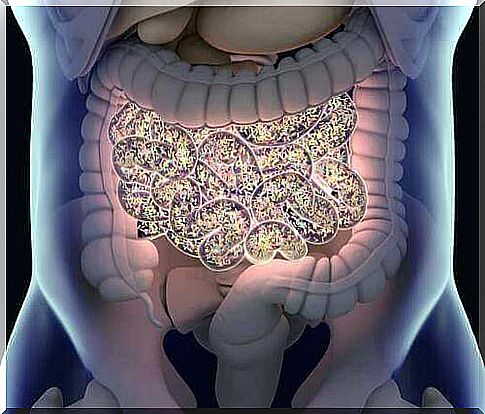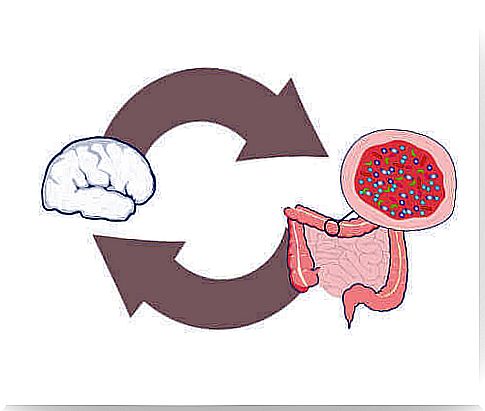Intestinal Bacteria As A Treatment For Obesity?

The human body is home to a huge amount of bacteria which protect against other harmful microorganisms and which help to perform numerous functions, such as digestion. For some years, science has been investigating the possibility of exploiting intestinal bacteria as a treatment for obesity.
The latter form the intestinal microbiota, which is a set of microorganisms that live permanently in our digestive system. The latter is mainly formed by bacteria, but viruses and fungi can also be present.
The intestinal microbiota accounts for almost 1.5 kilograms of our weight. According to scientists, these bacteria perform a multitude of functions, as they facilitate part of the metabolic reactions we need to live and also stimulate the immune system.
Today the role of intestinal bacteria against certain diseases is being studied. In this article, we explain the latest news on this and why intestinal bacteria could be a treatment for obesity in the future.
What is the function of intestinal bacteria?
Intestinal bacteria are microorganisms present in the digestive system. We can distinguish several species, as each person has a different gut microbiota.
Scientists have studied these differences to describe the functions these bacteria perform in the body. Research has shown that a healthy microbiota helps maintain a balance throughout the body.
It appears that intestinal bacteria are crucial for metabolism. In fact, they regulate appetite and weight, consequently also the inflammatory state associated with obesity. They could also play an important role in stress management.
For example, healthy people have been found to harbor many bacteria of the genus Clostridium. Conversely, those with immune disorders have far fewer numbers.

Their role in some pathologies
The latest studies suggest that these gut bacteria play an important role in the presence of certain diseases. For example, because they participate in glucose metabolism, they could be related to diabetes.
They also appear to intervene in various cardiovascular diseases. One of the most relevant data concerns obese people, in which variants of the intestinal flora have been detected.
The latter represents one of the most interesting research fronts given the high incidence of obesity in the current population. It is estimated that around 650 million people around the world are obese.

How can gut bacteria fight obesity?
An imbalance in the amount of intestinal bacteria can result in several alterations. First, it appears that many obese people harbor bacteria capable of using much more energy than certain foods. In other words, they absorb more nutrients than the others.
In the end, therefore, the caloric intake acquired is greater than in thin people. Other changes that vary depending on the intestinal bacteria present in the obese individual are:
- Less production of anti-inflammatory molecules.
- Poor appetite control and digestive imbalance.
- Greater accumulation of fat.
At the present time these elements are still being studied, but they represent a broad research front to be discovered. This is because, if future data confirm the role of intestinal bacteria in weight management, they could represent the basis of an obesity treatment in the future.
The aim would be to modify the proportion of these bacteria in order to restore the balance of healthy and thin people. This would be possible with probiotics or even with stool transplants. Fecal bacteriotherapy, in fact, is already used to treat some infections, because it allows to replace the intestinal bacterial flora.
In conclusion, the role of intestinal bacteria in obesity is not yet clear, but it represents an interesting and promising field of medical research.









